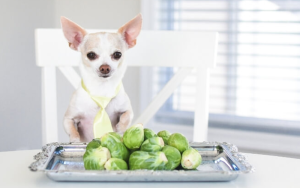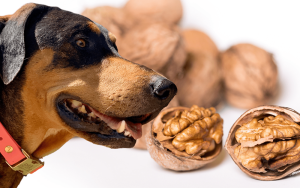Can Dogs Eat Cantaloupe? A Comprehensive Guide to the Benefits and Risks

If you’re a dog owner who loves to share healthy treats with your furry friend, you may be wondering if it’s safe to give them a bite of your cantaloupe. This sweet, refreshing fruit is a summer favorite for many, but can it be enjoyed by dogs? In this
article, we’ll explore the safety, benefits, and potential risks of feeding cantaloupe to dogs. We’ll also provide tips on how to properly serve it and whether your dog should have it as part of their regular diet.
Table of Contents:
- Introduction
- Is Cantaloupe Safe for Dogs?
- Health Benefits of Cantaloupe for Dogs
- How to Safely Feed Cantaloupe to Dogs
- Potential Risks and Side Effects
- Alternatives to Cantaloupe for Dogs
- Conclusion: Should You Feed Your Dog Cantaloupe?
1. Introduction
As pet parents, we are always on the lookout for healthy, natural treats to share with our dogs. Fruit is often considered a nutritious option due to its natural sweetness, vitamins, and fiber content. However, not all fruits are safe for dogs. While
some fruits, such as apples and blueberries, are commonly enjoyed by dogs, others can cause digestive issues or even be toxic.
Cantaloupe (Cucumis melo) is one of the fruits that many dog owners wonder about. With its juicy texture, high water content, and sweet flavor, it’s no surprise that dogs may find it appealing. But is it safe? Can it provide health benefits, or could
it cause harm?
In this article, we’ll take a detailed look at the pros and cons of feeding cantaloupe to dogs and offer expert advice on how to safely introduce this fruit into their diet.
2. Is Cantaloupe Safe for Dogs?
Yes, cantaloupe is generally safe for dogs when given in moderation and prepared properly. This melon is non-toxic to dogs and can be a refreshing, hydrating treat, especially on a hot day. However, as with any new food, it’s important to introduce cantaloupe
gradually to ensure that your dog does not have any allergic reactions or sensitivities to it.
Before offering cantaloupe to your dog, it’s essential to remove the seeds and rind. The seeds could pose a choking hazard, and the rind can be difficult for dogs to digest, potentially causing gastrointestinal upset. Always feed your dog the flesh of
the melon, cut into small, manageable pieces.
3. Health Benefits of Cantaloupe for Dogs
Cantaloupe is packed with nutrients that can be beneficial to your dog’s overall health. Here are some of the key health benefits of this fruit:
Rich in Hydration
Cantaloupe is made up of about 90% water, making it an excellent hydrating treat for dogs, especially during the hot summer months. Keeping your dog hydrated is essential for their overall health, as dehydration can lead to fatigue, dry skin, and more
serious health issues like kidney problems.
High in Vitamins and Nutrients
Cantaloupe is a rich source of vitamins A and C, which are important for maintaining a healthy immune system. Vitamin A supports healthy vision and skin, while vitamin C acts as an antioxidant, helping to protect cells from damage caused by free radicals.
Low in Calories
For dogs that are overweight or on a calorie-restricted diet, cantaloupe can serve as a healthy snack option. It’s low in calories but high in water and fiber, making it filling without contributing to excess weight gain.
Rich in Fiber
Cantaloupe contains a decent amount of fiber, which is beneficial for your dog’s digestive health. Fiber helps regulate bowel movements and can aid in preventing constipation. It also promotes a feeling of fullness, which can be helpful if you’re trying
to manage your dog’s weight.
Contains Antioxidants
In addition to vitamin C, cantaloupe contains other antioxidants like beta-carotene and flavonoids. These compounds help combat oxidative stress in the body, promoting overall health and reducing inflammation.
4. How to Safely Feed Cantaloupe to Dogs
While cantaloupe can be a healthy and enjoyable treat for your dog, there are some important guidelines to follow to ensure it’s served safely:
Remove the Seeds and Rind
Before offering cantaloupe to your dog, always remove the seeds and rind. The seeds are small and could pose a choking hazard, while the rind is tough and can be difficult for dogs to digest. Stick to feeding your dog the soft, juicy flesh of the melon.
Cut into Bite-Sized Pieces
When feeding cantaloupe to your dog, be sure to cut the melon into small, bite-sized pieces to prevent choking and make it easier for your dog to chew and digest. Large chunks could pose a choking risk, especially for smaller dogs.
Serve in Moderation
As with any treat, cantaloupe should only be given to your dog in moderation. Too much of any fruit, including cantaloupe, could upset your dog’s stomach or lead to diarrhea. A few small pieces a day is usually plenty for most dogs.
Observe for Allergic Reactions
Although cantaloupe is generally safe for dogs, it’s always best to monitor your dog for any signs of allergic reactions when introducing a new food. Watch for symptoms like vomiting, diarrhea, or skin irritation. If any of these occur, discontinue feeding
cantaloupe and consult your veterinarian.
5. Potential Risks and Side Effects
While cantaloupe is safe for most dogs, there are some potential risks to keep in mind:
Choking Hazard
The seeds and rind of cantaloupe can be dangerous if swallowed by dogs. Always remove these parts before offering the fruit, and make sure that the pieces you give your dog are small enough to chew and swallow easily.
Upset Stomach
Cantaloupe is high in fiber and water, which can be difficult for some dogs to digest in large quantities. Overeating cantaloupe could lead to stomach discomfort, diarrhea, or bloating. Always serve it in moderation, and observe how your dog reacts after
eating it.
High Sugar Content
Although cantaloupe is a natural fruit, it does contain sugar. Dogs with certain health conditions, such as diabetes or obesity, should avoid sugary treats like cantaloupe. If your dog has any preexisting health conditions, consult your vet before introducing
cantaloupe or other fruits into their diet.
Allergic Reactions
While rare, some dogs may have allergies or sensitivities to cantaloupe. Signs of an allergic reaction could include itching, swelling, or gastrointestinal upset. If your dog shows any of these symptoms, stop feeding cantaloupe and consult your vet.
6. Alternatives to Cantaloupe for Dogs
If your dog doesn’t seem to enjoy cantaloupe, or you’re concerned about its sugar content or potential side effects, there are plenty of other healthy fruits and vegetables you can offer instead. Some popular dog-safe options include:
- Watermelon: Like cantaloupe, watermelon is hydrating and low in calories. Be sure to remove the seeds and rind before serving.
- Blueberries: These antioxidant-packed berries are great for dogs and can be served fresh or frozen.
- Apples: Apples are a good source of fiber and vitamin C, but be sure to remove the seeds and core before feeding.
- Carrots: High in fiber and low in calories, carrots make a crunchy, healthy snack for dogs.
- Strawberries: Rich in antioxidants, strawberries are a sweet and healthy treat for your dog, but should be given in moderation.
7. Conclusion: Should You Feed Your Dog Cantaloupe?
Cantaloupe can be a healthy, refreshing treat for your dog when fed in moderation and prepared properly. It offers numerous health benefits, including hydration, vitamins, and fiber, making it a great choice for a low-calorie snack. However, it’s important
to remove the seeds and rind and serve the fruit in small, manageable pieces to prevent choking and digestive issues.
As with any new food, introduce cantaloupe gradually and monitor your dog for any adverse reactions. If your dog has special dietary needs or health concerns, always consult with your veterinarian before adding new foods to their diet.
In summary, if your dog enjoys the taste of cantaloupe, it can be a safe and nutritious treat—just remember to keep it moderate and prepare it properly. Happy snacking to you and your furry friend!
Key Takeaways:
- Cantaloupe is generally safe for dogs when prepared correctly (seeds and rind removed).
- It’s hydrating, low in calories, and rich in vitamins A and C, making it a healthy treat.
- Always serve cantaloupe in moderation and keep an eye out for any signs of digestive upset or allergic reactions.
- If your dog has diabetes, obesity, or any other health condition, consult your vet before giving them cantaloupe.






